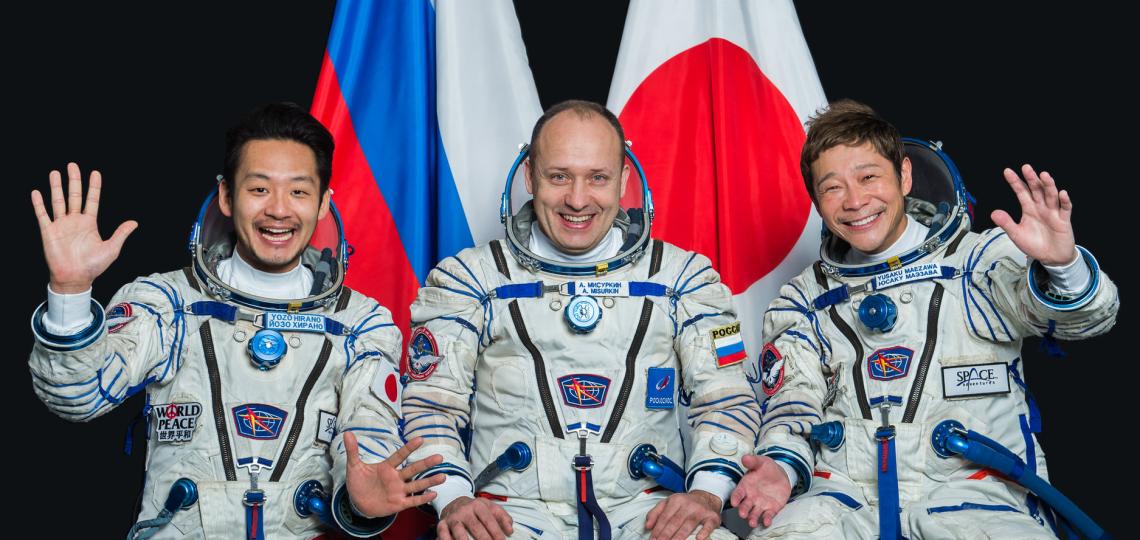The Translational Research Institute for Space Health (TRISH) partnered with Space Adventures to collect biomedical data from a spaceflight participant (SFP) which launched on Dec. 8, 2021. A suite of biomedical research projects was conducted before and after flight:
Projects
Vision Changes In Spaceflight
Investigator: Shivang Dave, PlenOptika
Co-Investigators: Eduardo Lage, PlenOptika
During spaceflight, the vision system undergoes physiologic and pathologic changes. Even short-term exposure to zero gravity causes a headward shift of body fluids, which could contribute to vision changes for space travelers. In some cases, astronauts have developed Spaceflight-Associated Neuro-Ocular Syndrome (SANS), a condition that affects vision. Yet the small quantity of space travelers has made studying the condition a challenge, limiting our understanding of the phenomenon. PlenOptika developed QuickSee, a portable, durable, low cost, yet highly accurate binocular autorefractor that can quickly measure refractive errors in the eyes and to monitor changes over time. On Earth, this technology makes effective eye prescriptions easier to obtain, especially for worldwide populations with low access to eye care. Space Adventures crew will use the QuickSee device before and after spaceflight to collect relevant biomedical data pertaining to their sight, yielding a high-value dataset for future vision research in space flight.
Neurocognitive Performance
Investigator: Mathias Basner, M.D., Ph.D., MSC, University of Pennsylvania Perelman School of Medicine
Co-Investigator: Alexander Stahn, University of Pennsylvania
Going into space is a stressful experience- not just for the human body, but also the mind. Increased stress can affect crew behavior and performance. Dr. Basner and his team at the University of Pennsylvania have developed a cognitive test battery for astronauts they will use to assess crew performance on a broad range of cognitive domains. Researchers will correlate cognitive test results collected pre- and post- spaceflight with health vitals collected from an Apple Watch. NASA astronauts undergo rigorous training to prepare for the stressful mission. Cognitive and physiologic data collected by the spaceflight participant could improve understanding of how the general population will behave and perform in space travel, which becomes more relevant as more spaceflight participants explore our solar system.
Re-Adaptation To Gravity After Spaceflight: Sensorimotor Testing
Principal Investigator: Mark J. Shelhamer, Sc.D., Johns Hopkins University School of Medicine
Co-Investigator: Michael Schubert, Johns Hopkins University School of Medicine
In zero gravity, astronauts lose their sense of motion. This neurovestibular concern could cause motion sickness, nausea, and other disorienting effects. Dr. Shelhamer, of Johns Hopkins, will study how passenger’s inner ears and eyes sense motion on Earth (and how this is changed after being in space), and how to use that information to enable prediction of who will get motion sickness in spaceflight. The tests are easy to administer via a tablet computer pre- and post- spaceflight. If effective, they could help prevent or minimize the effects of motion sickness and disorientation, improving the spaceflight experience and safety.
Data Integration And Future Use
Investigator: Eric Bershad, M.D., Baylor College of Medicine
Co-Investigators: Mohammad Hirzallah, M.D.; Rahul Damani, M.D., M.P.H.; Chethan Venkatasubba Rao, M.D., Baylor College of Medicine
A key component of the research projects is the archiving and sharing of biomedical results, biobanking, and research data. TRISH has developed a commercial spaceflight research repository capability titled Multimodal Evaluation of Spaceflight Health (MESH). This program will enable the seamless intake, archiving, standardization and sharing of research and biomedical data including biobanking of samples from commercial spaceflight participants with the end goal of increasing the body of evidence, increasing safety, and enhancing human health and performance during spaceflight including personalization and prediction of countermeasures.








 Credit
Credit
